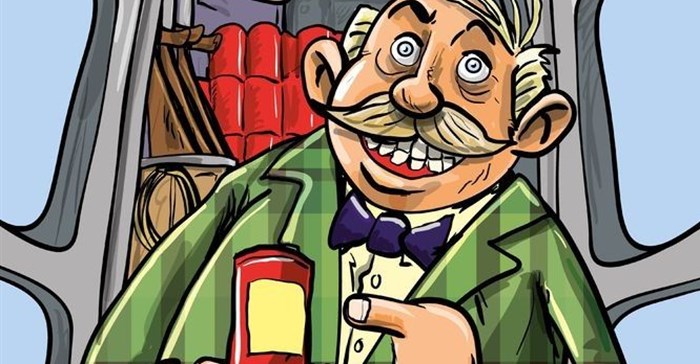Snake oil salesmen, charlatans and con-artists have long been known to prey on vulnerable people with health problems. People desperate for cure or relief from a dreaded disease, weight problem or the effects of ageing are easy targets, often willing to fork out large sums of money on any remedy offering some hope. The sad reality is that these treatments frequently turn out to be useless or even harmful.
The dangers of pseudoscience and quackery in healthcare will come under scrutiny at the International Summit on Quackery and Pseudoscience at Stellenbosch University(SU) on 20-21 November, 2017. It will be jointly hosted by the Centre for Evidence-based Health Care (CEBHC) of the SU Faculty of Medicine and Health Sciences (FMHS), and the Centre for Science and Technology Mass Communication (CENSCOM) of the postgraduate Department of Journalism at SU.
“The summit is an effort to push back against these exploitative practices whose pernicious impact is being amplified through the internet and social media. It will not only highlight the threat of pseudoscience to the well-being of society, but will also offer effective tools to help people assess healthcare claims and make sound choices,” says Professor Jimmy Volmink, dean of the FMHS.
“This summit will bring researchers and journalists together to emphasise the joint responsibility for ethical and evidence-informed health reporting to better serve the interests of the public,” says CEBHC director, Professor Taryn Young.
The role of the media
“The media play a crucial role in communicating health research and other messages to the public. They can influence people’s perceptions about the safety and efficacy of health practices, and when the media relay pseudoscientific and unreliable messages, it can be harmful to people’s health.
“Our vulnerability to step in the trap prepared by reckless and unscrupulous marketers of quasi-scientific health products knows no bounds,” says Censcom director, Professor George Claassen. “This is enhanced by celebrities in the spread of disinformation of fake science, which often has a devastating influence on the wellbeing of the public.” He points out that newspapers, the internet, social media and broadcast channels bristle with dubious statements by so-called quacks who make money because their victims are often ignorant or simply too naïve to distinguish truth from lies.
“We hope that the summit will lead to a much-needed change, enlightening the public and all the role players in the science communication process about the dangers of quackery. To quote the eminent South African born UK developmental biologist Lewis Wolpert: ‘Science provides by far the most reliable method for determining whether one’s beliefs are valid’; the summit aims to re-emphasise the value of sound science communication and evidence-based healthcare,” he says.
Claassen developed and established the first science communication course in Africa at SU’s Department of Journalism in 1995. He is a former science editor of the Cape Town daily newspaper, Die Burger. He elaborates about the reasons for organising the summit. “Ignorant, uninformed or merely poorly informed people often make decisions that are harmful to their health, their interpersonal relationships, their financial affairs and how they should spend their money, and what the future holds in store for them.
Unfortunately, this often takes place through dubious information and pseudo-knowledge, obtained from quacks, tricksters and swindlers who too regularly have a free pass in the media to propound their unscientific claims as if it were the truth. It is as if a ‘post-truth’ has fully dawned in the field of healthcare, with anyone’s claims to truth being accepted, the most recent iniquitous examples the anti-vaccination campaign, or faith-healers telling HIV-positive people to throw away their medicine.”
According to Claassen, the summit hopes to create an awareness among the public how to recognise fake news, not based on any trace of evidence and distributed by charlatans and scam artists to sell their “health” products. “And who, when confronted and their practices exposed, often turn to the courts to silence scientists and science journalists, acting in the interest of the public,” he emphasises, referring to various cases, also in South Africa, where evidence-based health practitioners and journalists were and are still being threatened with legal action if they do not keep quiet.
The most famous of these cases is probably that of the British Chiropractic Association against the scientist and award-winning author Simon Singh in 2009. Singh won the case after thousands of scientists signed a petition to support him and the case led to a change in British laws on defamation. He will be joining via Skype in order to be part of the Q & A-session with the theme “Sense about science: Why evidence matters.”
Summit line-up
The summit will host scientists from the fields of communication, medicine, healthcare and the law, as well as other areas over which quackery and pseudoscience cast its shadow of ignorance and misleading claims.
Besides award-winning author Simon Singh (joining via Skype), some of the other participants as speakers will be the UK’s Good Thinking Foundation’s project director, Michael Marshall; Jacques Rousseau, co-author of Critical Thinking and Pseudoscience – Why We Can’t Trust Our Brains; Tom Zeller, award-winning journalist, formerly of The New York Times and now executive editor of the digital science magazine, Undark at the Knight Science Journalism programme of the Massachusetts Institute of Technology; Nathan Geffen, editor of GroundUp and author of Debunking Illusions; Dr Harris Steinman, publisher and editor of CAMcheck and nemesis of many a quack in South Africa; Professor Anusuya Chinsamy-Turan, vertebrate paleontologist and science communication award-winning author from the University of Cape Town; Professor Keymanthri Moodley, Director: Centre for Medical Ethics and Law at Stellenbosch University and editor of Medical Ethics, Law and Human Rights; multiple award-winning science journalists and authors Mia Malan, Elsabé Brits, Daryl Ilbury and Marina Joubert; Janusz Luterek, legal expert on food science & technology; and Professor Roy Jobson, pharmacologist and health regulatory expert.
Click here to register for the summit.



























